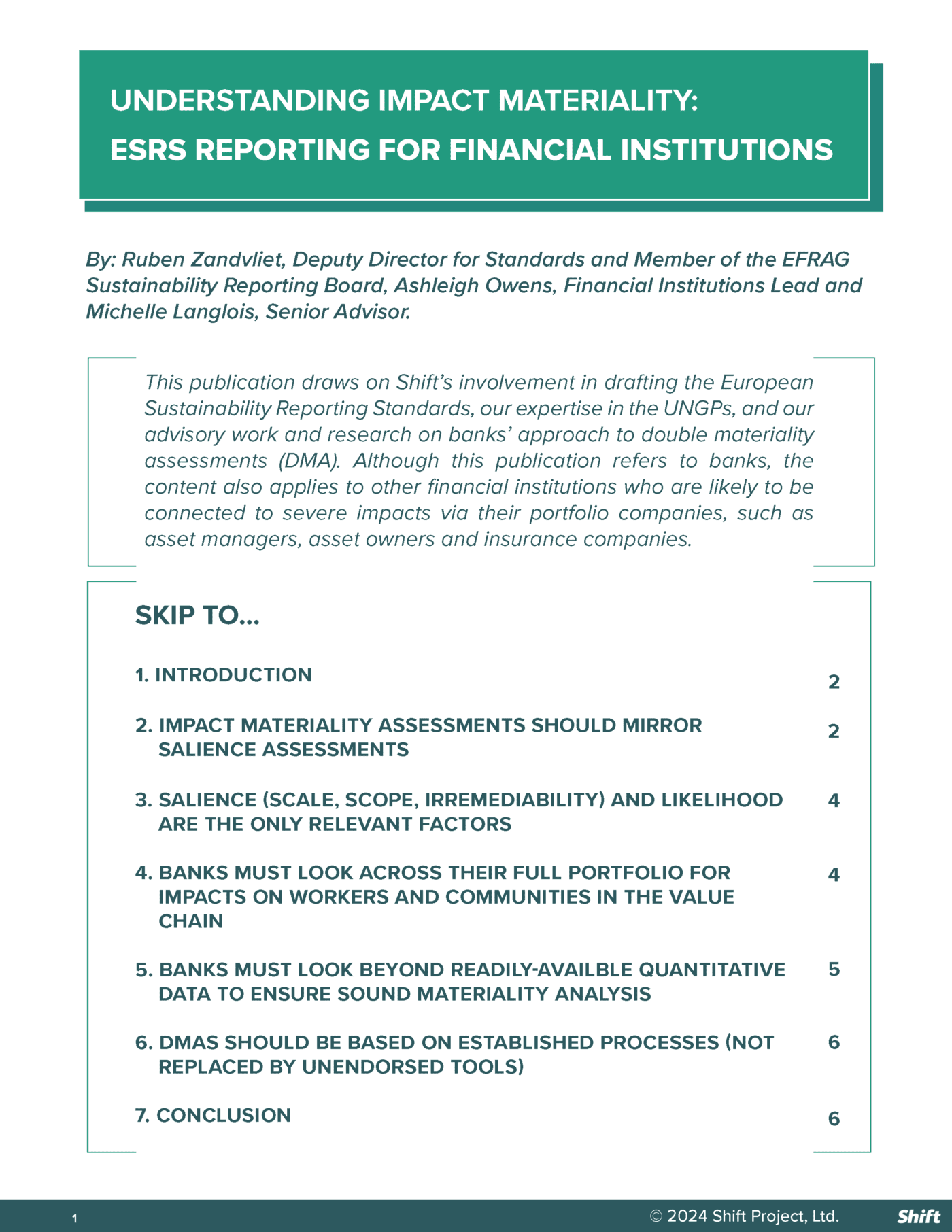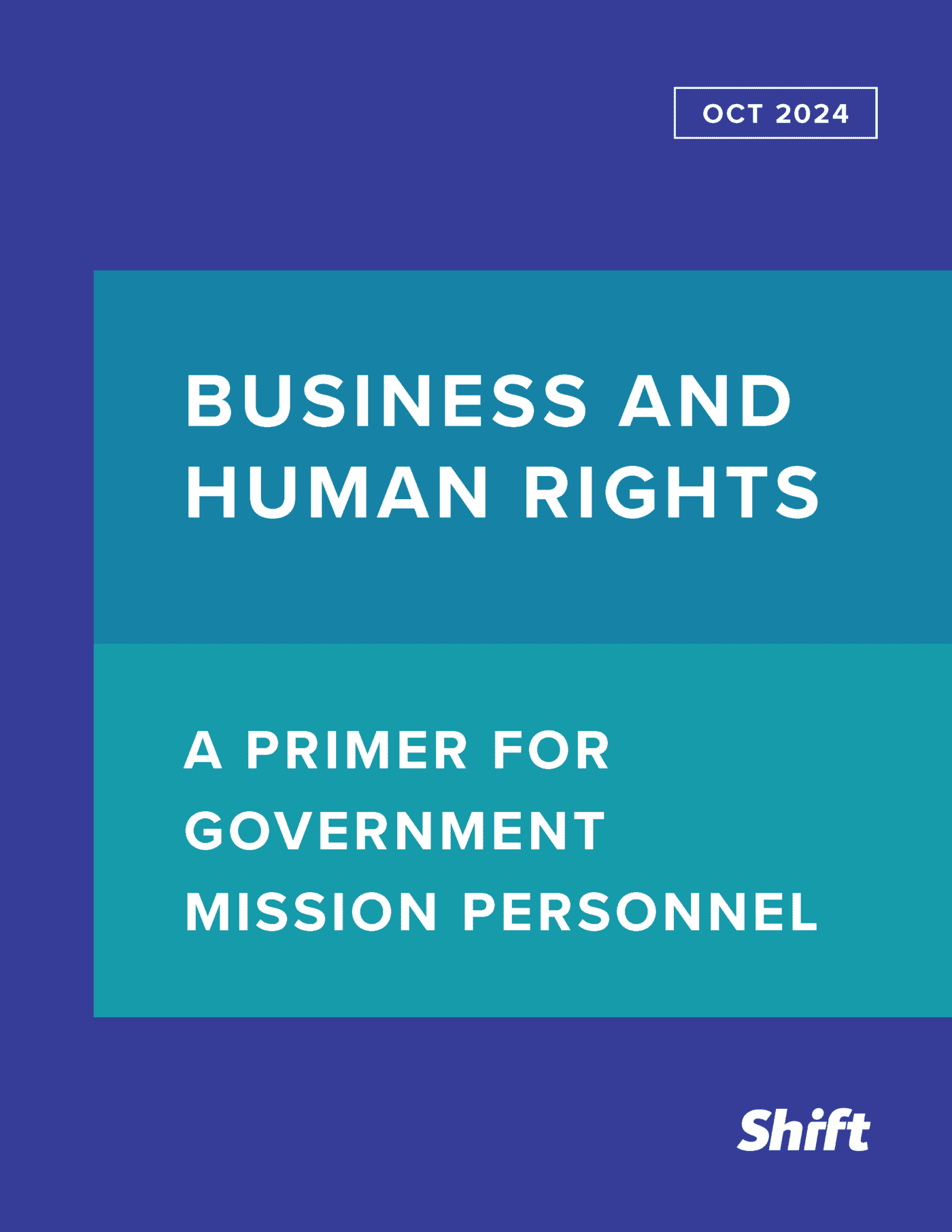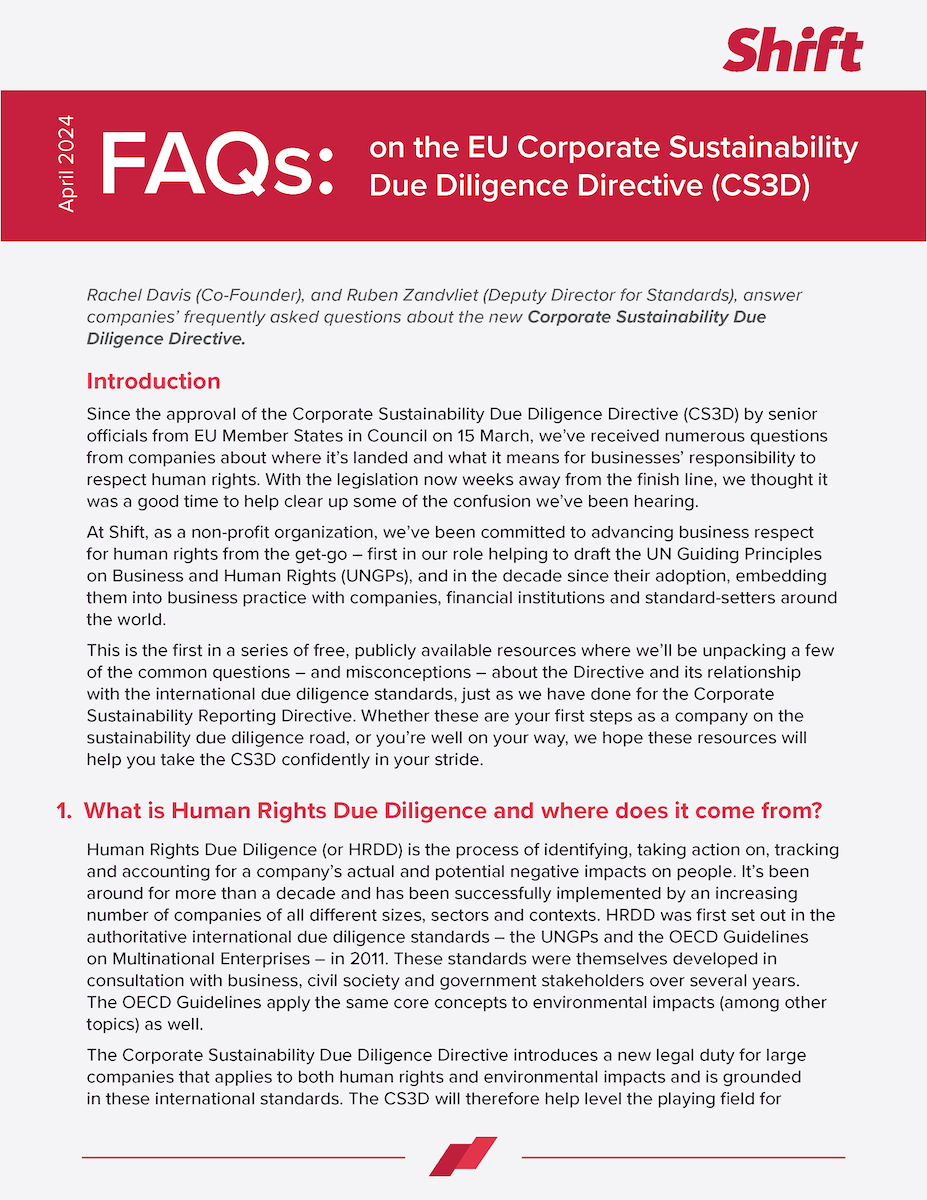This is the English translation of an opinion piece published in the Swiss newspaper Handelszeitung on March 22, 2018.
The New Normal of Human Rights Due Diligence
By John Ruggie
As the former Special Representative of the UN Secretary-General on the issue of Business and Human Rights and the author of the UN Guiding Principles on Business and Human Rights (UNGPs), I take great interest in the progressive implementation of measures to advance business respect for human rights, including through national policy and law.
With great respect, I was therefore disappointed that the Swiss Government decided not to put forward a counter-proposal to the referendum Initiative on responsible business conduct. The subject is of immense importance for major Swiss companies and for Switzerland’s own national brand.
At the same time, I am pleased that the Groupement des Enterprises Multinationales (GEM), which represents over 90 multinational companies, has taken a constructive position on the Initiative. Its Secretary-General, Arnaud Bürgin, is reported to have said that GEM agrees in principle with a counter-proposal currently discussed in parliament that includes due diligence measures. In turn, the organizers of the Initiative have indicated that they would be willing to accept this business-driven formula.
Human rights due diligence throughout the value chain is the most effective tool for companies to avoid involvement in human rights harm. It protects values and value alike. That is why governments, businesses, and civil society have been strong supporters of it, going back to the unanimous endorsement of the UNGPs by the UN Human Rights Council in 2011.
Switzerland would not be alone by undertaking progressive change in this space; indeed, it risks falling behind. Anti-slavery legislation has been adopted in a number of jurisdictions, ranging from California to the UK. France has adopted a “due vigilance” law. Canada has just established the office of ombudsperson with authority to compel witnesses and documentation from Canadian companies operating overseas that have been accused of human rights violations. The new German government, as part of its coalition agreement, will require companies to have human rights due diligence measures in place if, by 2020, fewer than half of German companies with more than 500 employees have not adopted them. The European Commission is examining corporate governance rules, requiring boards of directors to adopt and disclose their sustainability strategy, including appropriate due diligence throughout their supply chains. This list is not exhaustive, but it does underscore the new normal of human rights due diligence by firms.
There is still ample opportunity in Switzerland for informed and thoughtful discussion of the issues being raised by the Initiative and GEM. I urge all concerned to engage in constructive dialogue and move toward the convergent position of these major stakeholders.
John Ruggie is the Berthold Beitz Professor in Human Rights and International Affairs at the Harvard Kennedy School of Government.



